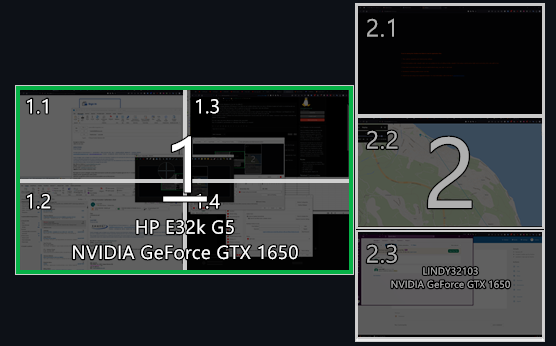this post was submitted on 23 Sep 2024
33 points (97.1% liked)
Linux
60185 readers
982 users here now
From Wikipedia, the free encyclopedia
Linux is a family of open source Unix-like operating systems based on the Linux kernel, an operating system kernel first released on September 17, 1991 by Linus Torvalds. Linux is typically packaged in a Linux distribution (or distro for short).
Distributions include the Linux kernel and supporting system software and libraries, many of which are provided by the GNU Project. Many Linux distributions use the word "Linux" in their name, but the Free Software Foundation uses the name GNU/Linux to emphasize the importance of GNU software, causing some controversy.
Rules
- Posts must be relevant to operating systems running the Linux kernel. GNU/Linux or otherwise.
- No misinformation
- No NSFW content
- No hate speech, bigotry, etc
Related Communities
Community icon by Alpár-Etele Méder, licensed under CC BY 3.0
founded 6 years ago
MODERATORS
you are viewing a single comment's thread
view the rest of the comments
view the rest of the comments

Most of the "software that runs only on Windows" runs perfectly on Linux with wine, including the installation software, and the integration into the app launcher on all of the Linux distribution that I know.
For a widow manager, I don't use one, i have many virtual desktop and as it's smoother than in Windows, I use only that (i don't remember how virtual desktop works on ubuntu)
Première run really badly in VM, and run it with wine is highly messy, do to poorly designed Windows install soft and plenty of missing dependencies, there are linux alternatives that do nearly the same job : KDEnLive, Shotcut and Openshot.
That all I can tell for now, I hope it will help you a bit. Ps: try other linux distribution before doing an installation to find the desktop manager that you prefer.
Thanks for your kind response!
I'll definitely try using Wine and the Premiere alternatives.
About the virtual screen, I mean...screen, not desktop. I've added a screenshot in the OP. I know that there are tons of Linux distributions, but I don't have much time to try them. I've been using Ubuntu for my servers and I've seen that it's quite nice and user friendly in the desktop version, ...but I'll do some extra search!
As the other person said, what you're doing is pretty much emulating the behavior of tiling window managers. Edit while writing: I'm leaving the rest here because you might find it useful, but I've just realized that there's a tiling extension for GNOME (the desktop environment used by Ubuntu): Tiling Shell. That's definitely going to be the most painless way for you to try out tiling. There's also bound to be something similar available for KDE.
~~I think you will get a much better result than with virtual screens by configuring one to your taste, assuming you're willing to spend a few hours learning all the ins and outs (it's absolutely OK if you're not willing to do that).~~
Here's links to a few of them, you should be able to install them in whatever distro you prefer:
Hyprland - a tiling WM focused on good out of the box experience and animations (but it's still very configurable). If you want to get your feet wet with standalone tiling WMs as fast and painlessly as possible, this is IMHO the way
Sway - a more keyboard-centric tiling WM that leaves out the fancy stuff (for example I don't think there's any way to do window shadows or animations for all the window manipulation) and focuses on just being fast and efficient if you learn its concepts. This is the only one I've ever used for longer periods of time.
SwayFX - "Sway, but with eye candy!" - I don't think I can write a better description - has some graphics effects like window blurring or shadows.
Thanks a lot for your precious information!